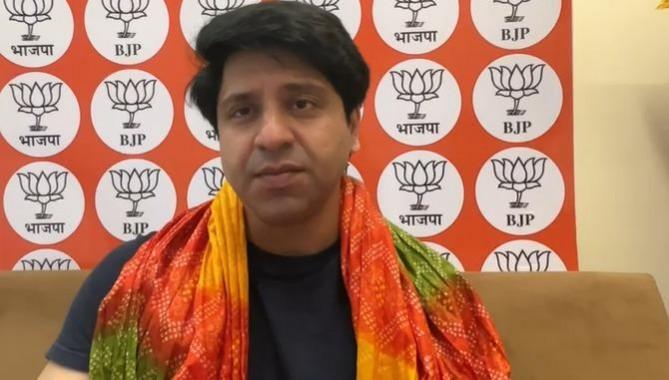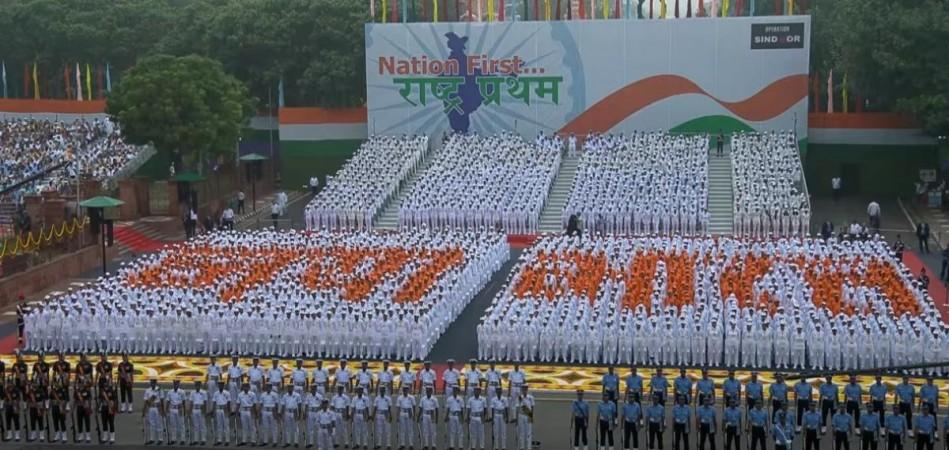
The decision by Congress MP and Leader of the Opposition (LoP) in the Lok Sabha, Rahul Gandhi, along with party President Mallikarjun Kharge, to skip the Independence Day celebrations at the Red Fort has ignited a political firestorm. The Bharatiya Janata Party (BJP), through its national spokesperson Shehzad Poonawalla, has criticized this move, labeling it as disrespectful to the Indian armed forces, the Constitution, and the memory of freedom fighters and martyrs, as well as to 'Operation Sindoor'. This absence has brought back memories of a similar controversy from the previous year, where Rahul Gandhi was seated in the second-last row during the event, a break from tradition and protocol.
The seating arrangement last year had sparked significant political uproar, with the Opposition calling it an "insult to the people." The Defence Ministry, however, clarified that the seating plan was adjusted to prioritize Olympians. Despite this explanation, the deviation from protocol was perceived by many as a slight against the Congress leader. This year, the absence of both Rahul Gandhi and Mallikarjun Kharge has further fueled the debate, with the BJP seizing the opportunity to question the Congress's commitment to national unity and respect for the armed forces and the Constitution.

Shehzad Poonawalla did not mince words in his criticism, stating, "Today, we celebrate Independence Day. It's not anyone's birthday or a party function. Yet the Congress has shown it is no longer the Indian National Congress, but the Islamabad National Congress or Italian National Congress. Rahul Gandhi, the Leader of the Opposition, boycotted the celebrations, proving that he is not just 'Modi Virodhi' but 'Desh Virodhi' and 'Sena Virodhi.' Today, 'Operation Sindoor' was honoured, and opposing the Sena seems to have become routine for the Congress."
Historical Context and Political Symbolism
The absence of Congress leaders from such a significant national event is not an isolated incident. Historically, similar events have occurred where political leaders' actions or inactions during national celebrations have sparked controversy. For instance, seating arrangements at significant events have often been a point of contention, reflecting the intricate balance of protocol, tradition, and political messaging. Such incidents highlight the importance of symbolism in politics, where even seemingly minor deviations from tradition can have significant implications.
Poonawalla further alleged that the Leader of the Opposition has consistently been against the idea of India, suggesting that this boycott is emblematic of the Congress's identity. He remarked, "This boycott is an insult to the Sena, to the Constitution, to 'Operation Sindoor', and to freedom fighters and martyrs. Unfortunately, it has become the identity of the Congress. Even the Supreme Court has remarked that he does not speak like an Indian." These statements underscore the ongoing political rivalry between the BJP and the Congress, with each party seeking to assert its narrative and influence public perception.
Earlier in the day, Poonawalla took to the social media platform X to express his disapproval. He wrote, "Congress spokesperson in a TV debate with me just confirmed that LoP Rahul Gandhi skipped the 15th August programme at Red Fort. This was a national celebration but sadly Lover of Pakistan Rahul Gandhi – in Modi virodh does Desh & Sena virodh! Shameful behaviour. Is this Sanvidhan and Sena ka Samman?" This public criticism is part of a broader strategy by the BJP to question the Congress's nationalistic credentials and its commitment to the country's foundational values.
Congress's Response and Broader Implications
In response to the criticism, Congress President Mallikarjun Kharge emphasized the importance of honoring the legacy of the national movement. He urged people to continue the struggle for constitutional rights, social justice, economic empowerment, and national unity. This statement reflects the Congress party's focus on broader national issues, even as it faces criticism for its leaders' absence from the Independence Day celebrations. The political landscape in India has often been marked by such controversies, where symbolic gestures and protocol are closely scrutinized.
The absence of key political figures from national events can be interpreted in various ways, often leading to heated debates and discussions. In this case, the BJP has seized the opportunity to question the Congress's commitment to national unity and respect for the armed forces and the Constitution. The current controversy also underscores the ongoing political rivalry between the BJP and the Congress, with each party seeking to assert its narrative and influence public perception.
As the political discourse continues, it remains to be seen how the Congress will respond to the BJP's allegations and whether this controversy will have any lasting impact on the party's image. For now, the absence of Rahul Gandhi and Mallikarjun Kharge from the Independence Day celebrations at the Red Fort serves as a reminder of the complex interplay between politics, protocol, and national symbolism in India.
The controversy surrounding the absence of Congress leaders at the Independence Day celebrations is not an isolated incident. Last year, the seating arrangement at the event had also caused a stir. By protocol, the Leader of the Opposition is allotted a front-row seat during ceremonial functions. However, last year, the front row at the Red Fort was occupied by then Chief Justice of India and Union Ministers Nirmala Sitharaman, Shivraj Singh Chouhan, Amit Shah, and S. Jaishankar, among others. This deviation from protocol was perceived by the Opposition as a slight, although the Defence Ministry maintained that the decision was made to honor Olympians.
The political landscape in India has often been marked by such controversies, where symbolic gestures and protocol are closely scrutinized. The absence of key political figures from national events can be interpreted in various ways, often leading to heated debates and discussions. In this case, the BJP has seized the opportunity to question the Congress's commitment to national unity and respect for the armed forces and the Constitution.
The current controversy also underscores the ongoing political rivalry between the BJP and the Congress, with each party seeking to assert its narrative and influence public perception. The BJP's criticism of the Congress's absence from the Independence Day celebrations is part of a broader strategy to question the party's nationalistic credentials and its commitment to the country's foundational values.
As the political discourse continues, it remains to be seen how the Congress will respond to the BJP's allegations and whether this controversy will have any lasting impact on the party's image. For now, the absence of Rahul Gandhi and Mallikarjun Kharge from the Independence Day celebrations at the Red Fort serves as a reminder of the complex interplay between politics, protocol, and national symbolism in India.
















